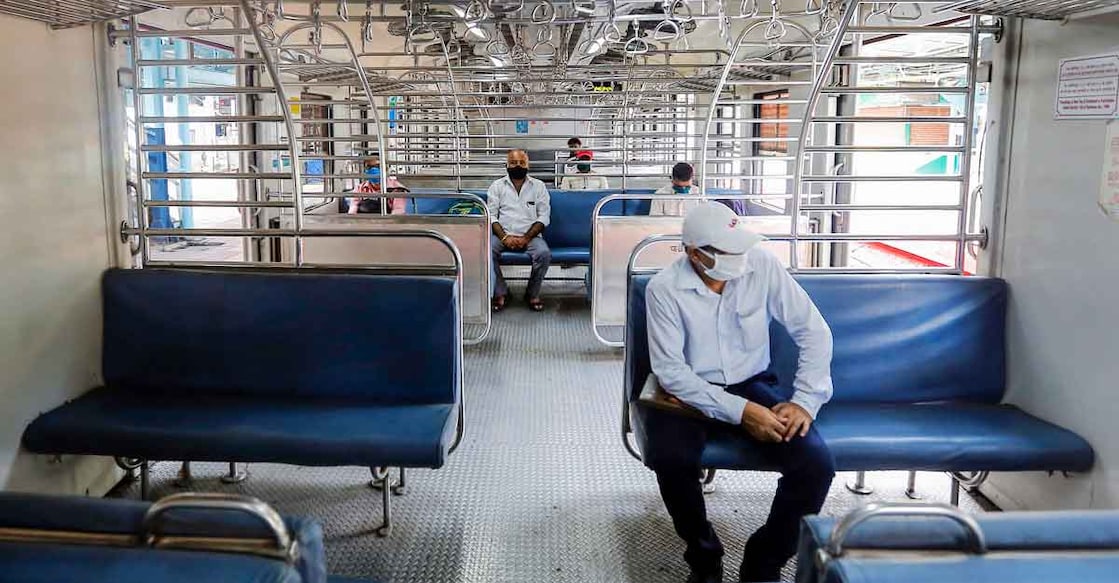Travelling by train during COVID-19? Follow these guidelines

Mail This Article
New Delhi: During the COVID-19 pandemic, public transport was limited to essential workers, those wanting to commute for other jobs were not permitted to use this service. As lockdowns lifted and workplaces reopened across the city, office goers eagerly waiting for train services to resume were relieved.
But for people travelling through train, it's imperative to understand the measures one can adopt to have a safe journey to and from work.
Travelling on trains for any length of time involves sitting or standing within 6 feet of others, which may increase one's risk of getting COVID-19. Dr Sandeep Patil, Chief Intensivist, Fortis Hospital, Kalyan shares guidelines that will help you prepare better for train travel:
Before travel:
Stay updated: Check the train schedule beforehand, this way you can time your travel in the non-peak hours and at a time slot of your preference and convenience.
Get your pass/ ticket in order: If possible, get an e-pass/ e-ticket so you don't have to wait in serpentine queues to get your travel documents in order. Choose to make contactless reservations and payments
Anticipate your travel needs: Carry a 3-ply face mask, a hand sanitizer, and a few disinfectant wipes with you. Carry a few extra masks in a sealed bag, so you could replace your mask if it gets soiled.
Prepare: Before you leave for work, wash your hands with soap and water and then wear your mask. Once worn, it should not be touched or removed till you arrive at your workplace. Wear gloves before you step out, these will work as a barrier if you end up touching door handles, railings etc. The gloves can be disposed appropriately after reaching your workplace -- if you don't have gloves, ensure that you don't touch your face during the transit and that you wash your hands thoroughly after getting work
During travel:
Avoid touching surfaces: Avoid touching frequently touched surfaces such as ticket machines, handrails, elevator buttons and benches as much as possible. If you do touch these surfaces, immediately wash your hands with soap and water or use a sanitizer containing 60% alcohol.
Follow social distancing guidelines: Stay at least 6 feet away from other commuters and avoid gathering in groups. Consider skipping a few seats between yourself and other passengers if possible. Follow signs put out by the railways indicating where to stand or sit, where to queue up and the exit signs
Using public bathrooms at the train station: Wash your hands with soap and water for at least 20 seconds after using the public bathroom
Buying food and water at the train station: Carry your water bottle and food packets, don't accept or offer water bottles to other commuters. If you end up buying food or water at the train station, pay contactless or in exact change. Avoid removing your mask to eat and drink while commuting.
Avoid spitting: This is a strict no-no
After getting to the workplace:
Hand hygiene: After completing your trip sanitize your hands, upon reaching your workplace wash your hands with soap and water for at least 20 seconds.
Mask hygiene: Remove the mask you wore during your travel & replace it with a fresh one. The previously worn mask can be placed in a sealed bag to wash or dispose
Avoid crowding in the cafeteria: At work, avoid eating together during lunchtime and maintain a safe distance in the cafeteria as well.
Some types of travel methods can put you at higher risk for exposure to COVID-19, but by taking ample precautions and following hygiene etiquettes, we can ensure a safe commute.

